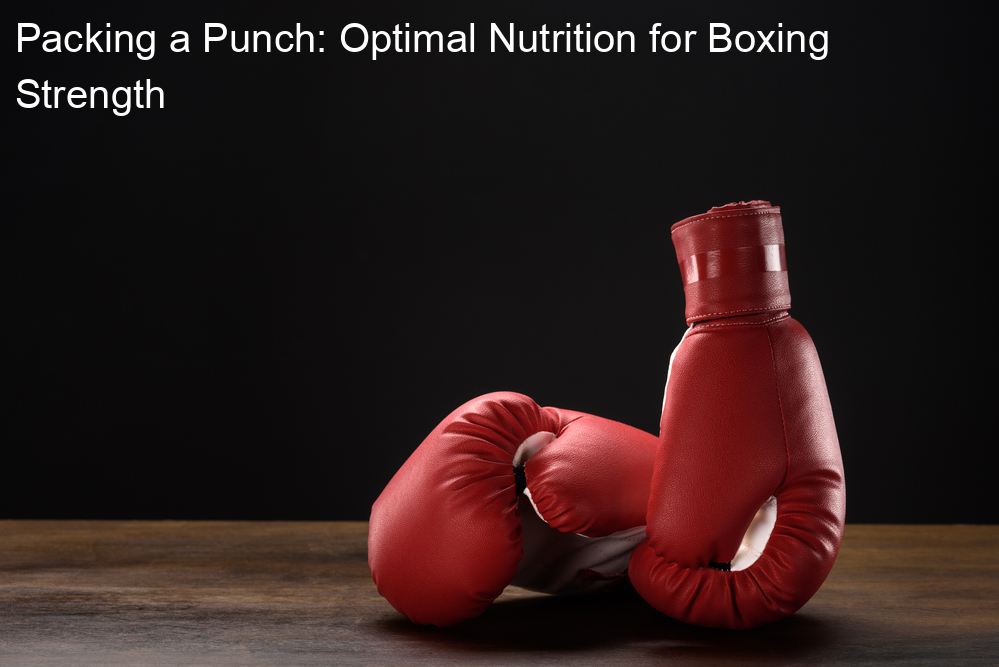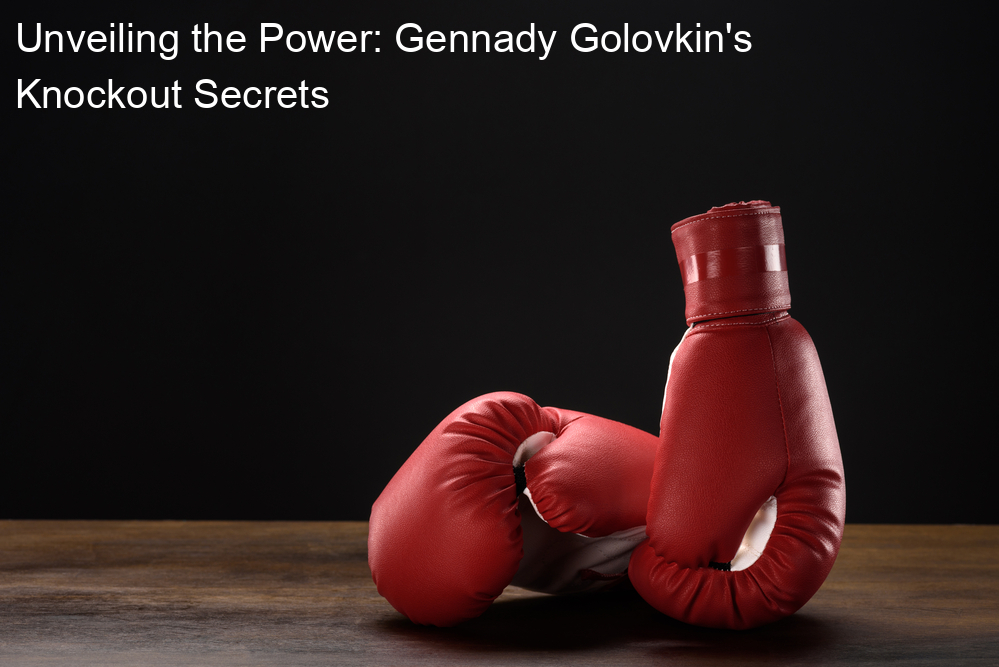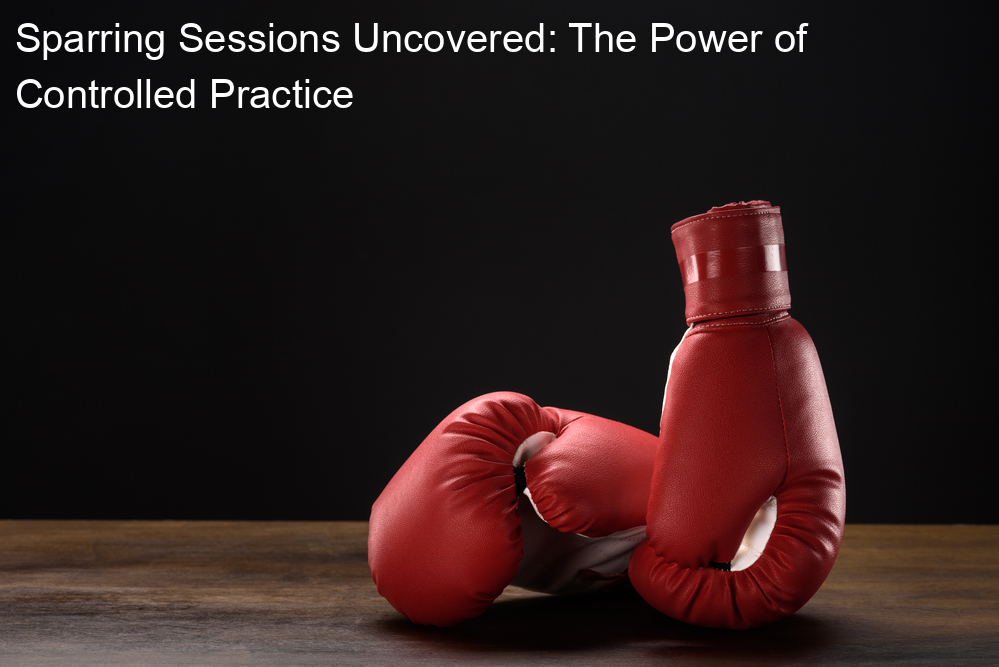Introduction to Boxing Strength Nutrition
Hey there, boxing enthusiasts! Ever wondered why your favorite boxers are so strong and energetic? Well, it’s not just about the punches and the jabs. A lot of it has to do with what they eat. Yes, you heard it right! Nutrition plays a key role in boxing. Let’s dive in and learn more about it.
- The importance of nutrition in boxing
- Key elements of a boxing diet plan
- Protein: This helps build and repair muscles. Good sources include chicken, fish, eggs, and beans.
- Carbohydrates: These provide energy. Good sources include whole grains, fruits, and vegetables.
- Fats: Yes, boxers need fats too! But only the healthy ones, like avocados and nuts.
- Vitamins and Minerals: These boost the immune system and keep the body healthy. They are found in fruits, vegetables, and dairy products.
- Water: Staying hydrated is super important for boxers. It helps keep their bodies cool and prevents dehydration.
Just like a car needs fuel to run, our bodies need food to function. But not just any food. Boxers need a special diet to keep them strong and energetic. A good diet helps boxers build muscle, recover faster, and stay in top shape. Boxers who don’t eat right may feel weak, get tired quickly, and even risk getting injured. So, the right nutrition is super important for boxers.
So, what’s in a boxer’s diet? A lot of good stuff! Here are some key elements:
Remember, every boxer is different. So, their diet plans may vary. But these key elements are usually present in all boxing diet plans.
So, that’s a quick intro to boxing strength nutrition. Stay tuned for more juicy details in the upcoming sections!
Nutrition for Boxers: The Basics
Hey there, future boxing champ! Let’s talk about something super important for your training – nutrition. It’s not all about throwing punches and dodging hits, you know. What you eat and drink plays a big role too!
- Understanding the role of macronutrients
First up, let’s talk about macronutrients. These are the big guys in your diet – proteins, carbs, and fats. They’re like the building blocks of your body. You need them for energy, to build and repair muscles, and to keep your body working well.
Proteins are like the building crew. They help repair your muscles after a tough workout. Carbs are your body’s main source of energy. They’re like the fuel for your engine. And fats? They’re like your body’s backup energy source. Plus, they help with things like absorbing vitamins and keeping your brain healthy.
So, as a boxer, you need a good mix of all three. But remember, not all proteins, carbs, and fats are created equal. Choose lean proteins, whole grains, and healthy fats for the best nutrition.
- Importance of hydration
Now, let’s talk about hydration. That’s just a fancy word for drinking enough water. And it’s super important for boxers.
When you’re boxing, you sweat. A lot. And when you sweat, you lose water. If you don’t replace that water, you can get dehydrated. And trust me, that’s not fun. It can make you feel tired, dizzy, and even sick.
So, how much water should you drink? A good rule of thumb is to drink at least half your body weight in ounces each day. So, if you weigh 150 pounds, you should drink at least 75 ounces of water a day. And if you’re working out hard, you’ll need even more.
Remember, good nutrition and hydration are just as important as your training. So, eat well, drink plenty of water, and keep on boxing!
High Protein Diet for Boxing: The Key to Strength
When it comes to boxing, strength is everything. But did you know that what you eat can make a big difference in your boxing performance? That’s right! A high protein diet can be a game-changer for boxers. Let’s dive into the benefits of a high protein diet and the best protein sources for boxers.
- Benefits of a High Protein Diet
- Best Protein Sources for Boxers
- Lean meats: Chicken, turkey, and lean cuts of beef are excellent sources of high-quality protein.
- Fish: Fish like salmon and tuna are not only high in protein but also contain heart-healthy omega-3 fatty acids.
- Eggs: Eggs are a complete protein, meaning they contain all the essential amino acids your body needs.
- Dairy: Milk, cheese, and yogurt are good sources of protein and also provide important nutrients like calcium.
- Plant-based proteins: For vegetarian or vegan boxers, tofu, lentils, chickpeas, and quinoa are great protein sources.
Protein is the building block of muscles. It helps in muscle recovery and growth, which is essential for boxers who undergo intense training. A high protein diet can help increase muscle mass and strength, making you a stronger and more formidable opponent in the ring.
Moreover, protein keeps you feeling full for longer, helping you maintain a healthy weight. It also provides energy for your workouts and helps repair any damage caused by strenuous exercise. In fact, according to a Wikipedia article, athletes like boxers may need twice as much protein as non-athletes to support their high levels of physical activity.
Now that we know the benefits of a high protein diet, let’s talk about the best protein sources for boxers. These include:
Remember, a balanced diet is key. While protein is important, don’t forget to include plenty of fruits, vegetables, and whole grains in your diet too.
Boxing Performance Nutrition: Enhancing Stamina and Endurance
When it comes to boxing, your performance in the ring depends a lot on what you eat. Your diet can make a huge difference in your stamina and endurance. One of the key nutrients that can help boost your performance is carbohydrates. Let’s take a closer look at how they can help.
- Role of carbohydrates in energy production
- Best carbohydrate sources for boxers
- Whole grains: Foods like brown rice, oatmeal, and whole grain bread are great sources of carbohydrates.
- Fruits: Bananas, apples, and oranges are all good choices. They’re not only rich in carbohydrates, but also packed with vitamins and minerals.
- Vegetables: Sweet potatoes, peas, and corn are high in carbohydrates and also provide other essential nutrients.
Carbohydrates are like fuel for your body. When you eat foods rich in carbohydrates, your body breaks them down into glucose. This glucose is then used by your body to produce energy. This energy is what keeps you going during your boxing workouts and matches. Without enough carbohydrates, your body might not have enough energy to perform at its best. Wikipedia provides a detailed explanation on how carbohydrates are converted into energy.
Not all carbohydrates are created equal. Some are better for you than others. For boxers, the best sources of carbohydrates are whole grains, fruits, and vegetables. These foods not only provide you with the energy you need, but they also contain other nutrients that are important for your health. Here are a few examples:
Remember, a good diet is just one part of a successful boxing training program. Don’t forget to also focus on your workouts and rest to ensure you’re performing at your best.
Foods for Boxing Strength: What to Eat and When
When it comes to boxing, strength isn’t just about how hard you can punch. It’s also about how long you can last in the ring. And guess what? The foods you eat play a huge role in both of these things. Let’s dive into what you should be eating before your workout to maximize your boxing strength.
Pre-Workout Nutrition
What you eat before your workout can make a big difference in your performance. Here are some tips on what to eat and when to eat it.
- Best foods to eat before a boxing workout
- Bananas: They’re packed with potassium, which helps prevent muscle cramps.
- Oatmeal: It’s a great source of slow-releasing energy, keeping you going throughout your workout.
- Chicken breast: This lean protein helps build and repair muscles.
- Almonds: They’re full of healthy fats and protein, which provide long-lasting energy.
- Timing your pre-workout meal
Before you step into the ring, you need to fuel your body with the right foods. Here are some top picks:
When you eat is just as important as what you eat. Aim to have your pre-workout meal about 2-3 hours before you start training. This gives your body enough time to digest the food and convert it into energy. If you’re in a rush and can’t eat a full meal, have a small snack like a banana or a handful of almonds about 30 minutes before your workout.
Remember, everyone’s body is different. What works for one person might not work for another. So, experiment with different foods and timings to see what works best for you. And always listen to your body. If you feel sluggish or heavy during your workout, you might need to tweak your pre-workout nutrition.
Post-Workout Nutrition
After a tough boxing workout, your body needs the right fuel to recover and rebuild. Let’s dive into the best foods to eat post-workout and why they’re so important.
- Best Foods to Eat After a Boxing Workout
- Protein-rich foods: Foods like chicken, eggs, and Greek yogurt provide the protein your muscles need to repair and grow.
- Complex carbohydrates: Whole grains, fruits, and vegetables help replenish your energy stores and keep you feeling full.
- Healthy fats: Avocados, nuts, and seeds provide essential fatty acids that support overall health.
- Hydrating fluids: Water, herbal teas, and natural fruit juices help rehydrate your body after sweating it out in the ring.
- Importance of Post-Workout Nutrition for Recovery
- Repair muscles: Protein helps repair damage caused by the workout, promoting muscle growth.
- Replenish energy: Carbohydrates replenish glycogen stores, your body’s main source of energy.
- Hydrate: Fluids replace the water lost through sweat, preventing dehydration and supporting overall health.
Once you’ve finished your boxing workout, your body is in recovery mode. It’s time to refuel with foods that help repair muscles and replenish energy stores. Here are some top picks:
Remember, it’s not just about what you eat, but when. Aim to have a balanced meal within 45 minutes to an hour after your workout for optimal recovery.
Post-workout nutrition is crucial for boxing strength and conditioning. It helps your body:
By eating the right foods after your workout, you can speed up recovery, increase muscle strength, and be ready for your next boxing session. Remember, good nutrition is just as important as the workout itself!
Nutrition Tips for Boxers: Making the Most of Your Diet
As a boxer, your diet can make or break your performance in the ring. Here are some top tips to help you make the most of your diet.
- Meal Planning and Preparation
Planning your meals in advance can help you stay on track with your nutrition goals. It’s not just about eating the right foods, but also eating them at the right times. For example, consuming a protein-rich meal after a workout can help your muscles recover faster. Preparing meals in advance can also save you time and reduce the temptation to eat unhealthy foods.
- Importance of Variety in a Boxing Diet
Eating a variety of foods can provide you with a wide range of nutrients, which is essential for your overall health and performance. Don’t just stick to chicken and broccoli every day. Try to include different types of lean proteins, fruits, vegetables, and whole grains in your diet. This will not only keep your meals interesting but also ensure that you’re getting all the nutrients you need.
- Understanding the Role of Supplements
Supplements can be a useful addition to your diet, but they should never replace real food. They can help you meet your nutritional needs when it’s difficult to get certain nutrients from food alone. For example, protein powders can be a convenient way to increase your protein intake, especially after a workout. However, it’s important to remember that supplements should be used as a supplement to a healthy diet, not as a substitute. Always consult with a healthcare professional before starting any new supplement regimen.
Remember, a well-planned and varied diet, along with the right supplements, can help you reach your boxing goals. So, make sure to take these tips into account when planning your meals.
Boxing Strength and Conditioning: The Role of Nutrition
When it comes to boxing, strength and conditioning are key. But did you know that what you eat plays a huge role in your performance? Let’s dive in and see how nutrition supports strength and conditioning in boxing.
- How nutrition supports strength and conditioning
- Case study: Successful boxers and their diet plans
Nutrition is like fuel for your body. Just like a car needs the right kind of fuel to run smoothly, your body needs the right kind of food to perform at its best. Eating a balanced diet can help you build muscle, increase your stamina, and recover faster after a workout.
Protein, for example, is essential for muscle growth and repair. Carbohydrates provide energy, while fats are important for hormone production and overall health. Vitamins and minerals, too, play crucial roles in various bodily functions. So, if you want to be a strong and conditioned boxer, you need to pay attention to your diet.
Let’s take a look at some successful boxers and what they eat to stay in top shape. Floyd Mayweather, for instance, is known for his high-protein, low-carb diet. He eats lots of lean meats, fruits, and vegetables, and avoids processed foods. This helps him maintain his strength and conditioning, and keeps him ready for his fights.
Manny Pacquiao, on the other hand, follows a high-carb diet to fuel his intense workouts. He eats lots of rice, chicken, and fish, along with plenty of fruits and vegetables. This gives him the energy he needs to train hard and perform well in the ring.
As you can see, there’s no one-size-fits-all diet for boxers. What’s important is to find a diet that works for you and supports your training goals.
Remember, nutrition is just as important as your training routine. So, make sure you’re eating right to support your boxing strength and conditioning. And if you’re not sure what to eat, consider consulting a nutritionist or a coach. They can help you create a diet plan that’s tailored to your needs.
Boxing Workout Nutrition: Fuelling Your Training
When it comes to boxing, your training doesn’t just happen in the ring. It’s also about what you put into your body. Let’s dive into the world of boxing workout nutrition and see how you can fuel your training effectively.
- Understanding the energy demands of a boxing workout
Boxing is a high-intensity sport that requires a lot of energy. It’s not just about strength, but also speed, agility, and endurance. According to a Wikipedia article on boxing training, a typical boxing workout can burn anywhere from 500 to 1000 calories. That’s a lot of energy!
So, where does this energy come from? It comes from the food you eat. Your body breaks down the food into glucose, which is then used as fuel for your muscles. If you don’t eat enough, you won’t have enough energy for your workout. But if you eat too much, you might feel sluggish and slow.
- How to properly fuel your body for training
So how do you strike the right balance? Here are some tips:
- Eat a balanced diet: Your diet should include a mix of carbohydrates, proteins, and fats. Carbohydrates are your body’s main source of energy, while proteins help repair and build muscles. Fats, on the other hand, are a concentrated source of energy and are essential for hormone production.
- Timing is key: When you eat is just as important as what you eat. Try to eat a small meal or snack 1-2 hours before your workout to give your body the fuel it needs. After your workout, eat a meal rich in proteins and carbohydrates to help your muscles recover.
- Stay hydrated: Don’t forget to drink plenty of water before, during, and after your workout. Dehydration can lead to fatigue and reduced performance.
Remember, every body is different. What works for one person might not work for another. Listen to your body and adjust your diet as needed. And don’t forget to consult with a nutritionist or dietitian if you need more personalized advice.
Conclusion: The Power of Nutrition in Boxing
As we’ve journeyed through the world of boxing nutrition, it’s clear that what a boxer eats and drinks plays a crucial role in their performance in the ring. From the basics of nutrition to the specifics of a high protein diet, we’ve covered a lot of ground. Now, let’s wrap things up with some key takeaways and final tips.
- Key takeaways on boxing strength nutrition
- Final tips for implementing a successful boxing diet plan
Boxing strength nutrition is all about balance. A diet rich in proteins, carbohydrates, and healthy fats is essential for a boxer’s strength and endurance. Protein is crucial for muscle recovery and growth, while carbs provide the energy needed for intense workouts. Healthy fats, on the other hand, aid in hormone production and overall health.
Remember, timing is also key. Eating the right foods at the right times can maximize your performance and recovery. For instance, consuming a high-protein meal or snack post-workout can aid in muscle recovery and growth.
First, always listen to your body. Everyone is different, so what works for one boxer might not work for another. Experiment with different foods and meal timings to see what suits you best.
Second, hydration is just as important as nutrition. Make sure you’re drinking enough water, especially during and after workouts.
Lastly, don’t forget about rest. Good nutrition and training are important, but so is giving your body time to recover. Make sure you’re getting enough sleep and taking rest days when needed.
Remember, a good diet can make a good boxer great. So, take what you’ve learned here and use it to fuel your journey in the ring. Happy boxing!






